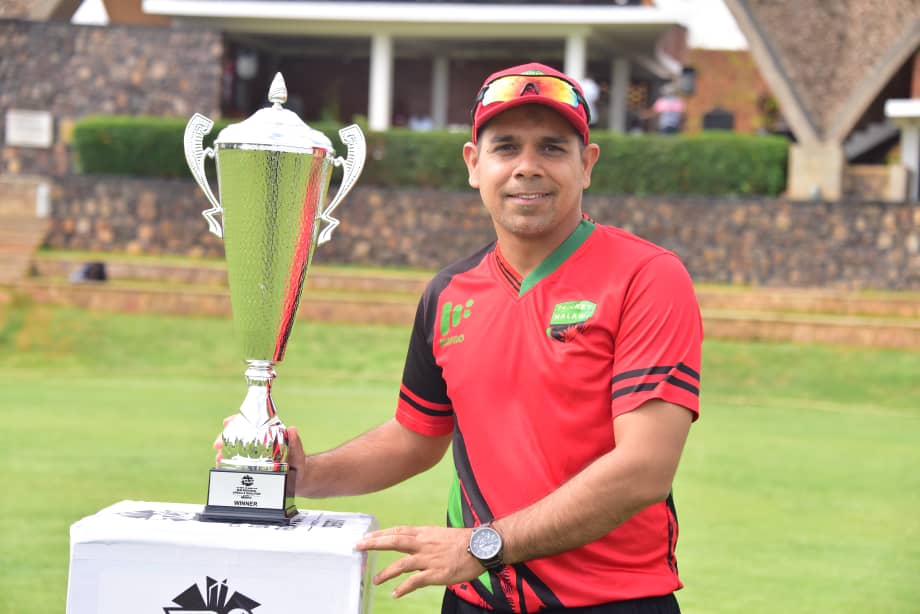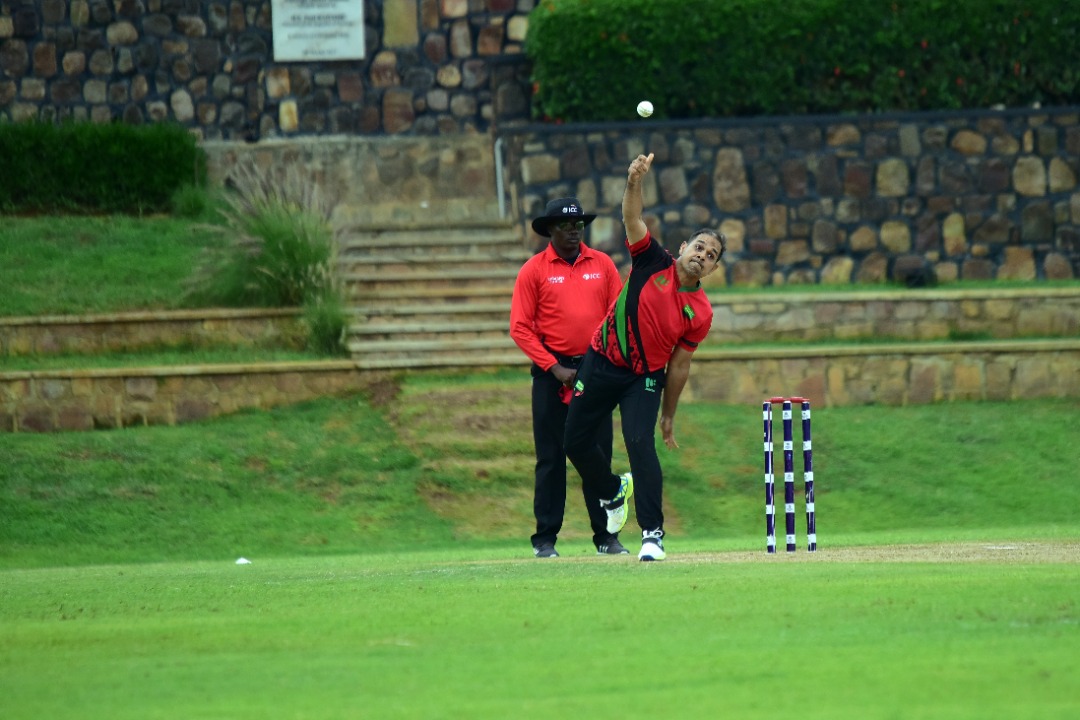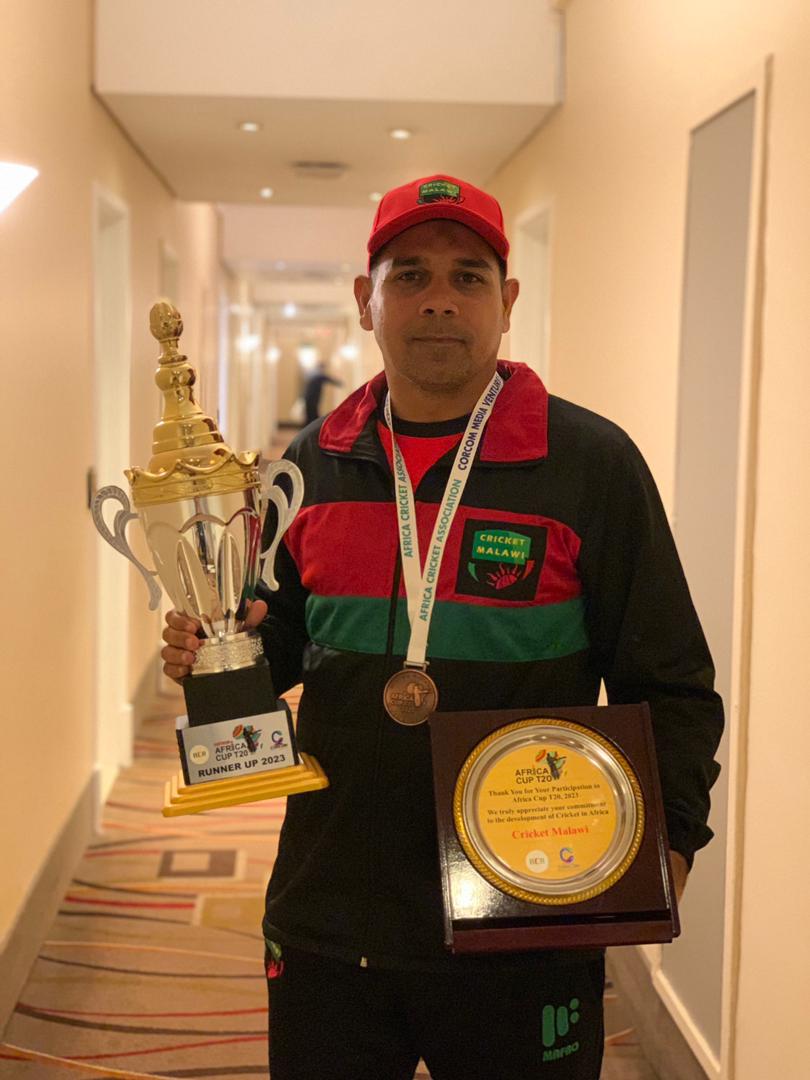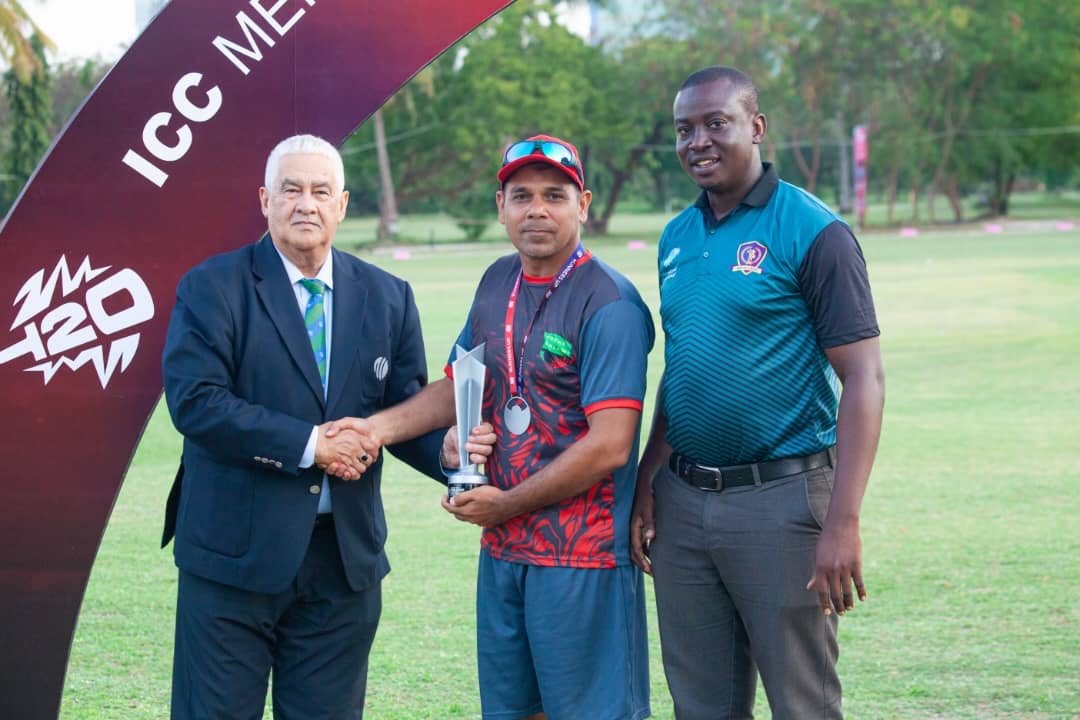Story
Meet Moazzam Baig, the man with best economy rate, most five-wicket hauls in T20Is
29 Nov, 2024
The all-rounder was born in Pakistan, played domestic cricket for Sindh Police but after failing to go beyond a level, he realised his dream of playing international cricket for Malawi
 Bareera K.H.
Bareera K.H.
A young aspiring cricketer beginning to write
 Khurram Habib
Khurram Habib

That someone with the best economy rate, most five-wicket hauls and third best bowling average in T20 Internationals could hail from the Federal B Area in the Pakistani city of Karachi which is five-minute drive from batting great Javed Miandad’s house shouldn’t surprise anyone.
Pakistan, as everyone knows, has a tradition of producing great bowlers.
Except that the bowler we are talking about appears in international cricket in Malawi’s jersey.
Moazzam Ali Baig, captain of the cricket team of this southeast African country, is one of the only two bowlers to have three five-wicket hauls in T20 International cricket. The other bowler is Rizwan Butt of Bahrain.
Baig also has the best economy rate in T20Is with 4.77 and has the third best bowling average, having taken 62 wickets in 39 matches at 10.38.
“It is a great feeling. Whatever it is, it is an international record. I know we haven’t played at that level. But we have played Uganda, Kenya, Namibia, and Zimbabwe who have competed at the World Cup,” says Baig from Lilongwe, the capital of the country where he stays.
Baig, having learnt the basics at Rashid Latif Cricket Academy in Karachi and gone through the junior cricket ranks, was playing inter-departmental cricket for Sindh Police almost making it to the second-tier of Pakistani domestic cricket, Patron’s Trophy, before his brother asked him to come to Malawi.
“We are seven brothers, five sisters and I am the youngest of all. One of my brothers had settled in Malawi and was dealing in used cars. He asked me to come there. I was not interested because I had a decent job and was settled. But he insisted that I visit him just for a month. I went there and decided to stay back after my brother convinced me,” says Baig.
That was 2007, the year Pakistan crashed out in the first round of the 50-over World Cup in the West Indies.

Baig had picked a job in Malawi and cricket was far from his thoughts. But soon that cricketer in him awakened and he managed to find out that there is weekend cricket about half an hour’s drive from Lilongwe.
“I had been following an office-home routine but one day I decided to go there and meet some guys who worked at my office. They asked me to play but I didn’t tell them about my cricketing background. I told them I used to play only for fun. I didn’t have any shoes or cricket kit since I had come there only for a month,” says Baig.
“I played the first match for Muslim Sports Club in Lilongwe and scored a half-century even though I was playing after a year. I also picked 2-3 wickets with my off-spin, won Man of the Match Award. The first impression was good and they asked me to play the entire league.”
Baig, now 39, continued playing for them.
“I realised after a couple of years that it is just social cricket, wickets and runs won’t matter eventually. So I decided that if I have to play and put in effort, why not look at the national team.”
He found out and after two years of research of domestic and national team set-up, developing links and understanding the workings, he thought it was too much trouble especially with a full-time job at hand.
He got married in 2014 and left cricket for what he thought was, forever. He had got the Malawian nationality.
But then opportunity came knocking on his doors.
In 2018, South Africa-born all-rounder Andre Botha, who had played for Ireland in that 2007 World Cup match that saw the exit of Pakistan and also in the 2011 edition, had come to Malawi on International Cricket Council’s (ICC) behalf and was taking trials.
“My friend insisted that I should go there. I had been away from the game for 3-4 years as I stopped playing after my marriage. So, during the lunch hour, I left office, changed quickly and reached there. Botha saw me bat and bowl. He said that they have an ICC World Cup qualifying round after six months in Botswana,” recalls Baig.
Botha was impressed by his skills and asked him to work on fitness.
“He said, ‘If you work on fitness, I can push your name’. I told him, ‘I have a job and don’t have time to prepare for fitness. If you assure me that I am part of your plans, then I will work hard. Because it isn’t that easy to return to fitness. My body was at rest’.”
Baig had put on weight and it would require a lot of work to get back into shape.
“He (Botha) assured me.”
Botha had arrived in 2017 and in August, 2018 the final team was announced. He kept Baig in the Malawi squad.
“I worked on my diet. Removed sweets and eating at odd hours. I scheduled everything. I reduced all the carbs. Joined gym, did fitness, training, jogged and did running for six months. I did everything Botha demanded,” says Baig who works as a logistics manager in a garment factory.

The 2018 ICC qualifying round in Botswana wasn’t good for him or the team. They won two and lost three games. He scored 30-odd in two of the games and 20 in one.
“But three days later, the team played the Africa Cup. We played the final there. I made 266 runs in five matches and was the best batsman and Player of the Tournament.
“We lost the final but qualified for the next Africa Cup. We had a home series against Mozambique, seven T20 matches. We won 5-1. I was the best bowler in that. Took 14 wickets in the bilateral series.”
Covid put a halt on his career but post pandemic he was named captain of the national team for the ICC qualifying round in Rwanda for 2021 T20 World Cup.
“We almost qualified for next round but there was rain in one game. That was a do-or-die game. Had 14 wickets there, ended as the 2nd best bowler. We would have made the sub-regional qualifier and played games against Zimbabwe, Uganda and Namibia.”
The Malawi team were unlucky in the ICC qualifying round for the 2022 World Cup. Two games, which they were banking on heavily, were washed out.
“This year too we have qualified for the next round and next year we will play the sub-regional qualifier. Two finalists will make the next T20 World Cup. We played the Africa Cup, entered final of two consecutive ones,” said the 39-year-old who will turn 40 next year.
In 2018, 2022 and 2023, he was included in best team from Africa Cup.
Adding a dash of local flavour
One of the striking features of Malawi cricket is that all the national players are Malawi nationals.
Even Baig needed to take nationality to play for the country.

In fact, Baig and Sami Sohail are the only ones who were born outside Malawi with the latter coming to the country when he was just four. There are two other Asian-origin players but they are born in Malawi. The rest are indigenous Africans.
“There is no point in filling the team with Indians and Pakistanis. If the country’s local talent doesn’t come up, learn game awareness, there is no benefit of us or them playing. Our management has ensured that if we are playing in the team, we have to bring the local talent, groom them on skills and game awareness. This is to make sure that when we are leaving, someone should take over the game.”
Baig doesn’t take any match fees and prefers that youngsters take it instead.
“Arjun Menon and Vivek Ganesan, who are in charge of Malawi cricket, have worked very hard. It would have been easy for us to go with Indians and Pakistanis and qualify for World Cups. But they said we will go in the right direction, work on grassroots and locals. It took us a few years, but we have reached a level.”
Cricket is still in an early stage in the country despite improvements over the last few years.
The city of Blantyre alone has a proper cricket set-up.
“The facilities there were much better. They have a ground, academy, school work, grassroots programme, women and girls, u-13, u-15 and u-17 cricket. I started going there on weekends. I used to go on Friday from here by either car or bus and would return on Sunday evening. Monday used to be office. Even today I go there for practice.”
Being a veteran and a senior player there, Baig has to ensure he plays top tournaments in both Blantyre and Lilongwe. The main league happens in Blantyre while a T20 League takes place in Lilongwe.
“I am getting ready for the next set of games, keeping myself fit. I want to see Malawi reach the T20 World Cup,” he signs off.
Cricket, Moazzam Baig, Africa, Malawi, International Cricket Council, ICC, Sami Sohail